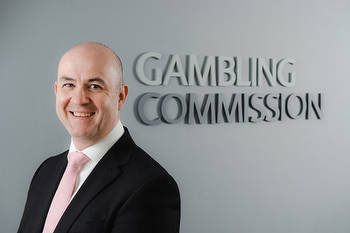Takeaways from UKGC's Discussion on the State of UK Gambling
Sarah Haselwood
Andrew Rhodes, the UK Gambling Commission’s CEO, recently delivered a speech to discuss the state of UK gambling.
In summary, he believes that gambling operators have made progress in the last year, but the revised Gambling Act still presents challenges in the UK. He added that all associated stakeholders must present accurate statistics to present genuine reporting about gambling.
Collaboration: Rhodes said that to align with the government’s vision, the gambling industry, the UKGC and the industry must continue to work together, not in isolation.
Diversity: The CEO said he believes there is no one-size-fits-all solution for the industry as it is so diverse.
Cooperation: Rhodes said that there has been a “Decrease in cases of extreme harm” due to cooperation and effort between the UKGC and different gambling regulators.
Risk: In addition, he added that risk exists in the gambling industry, and some active players are playing more and more. However, compliance is built into the UKCG’s approach and ensures that operators (in tiers two and three) grow in “a responsible fashion.”
Protection: In his speech, Rhodes discussed the balance between keeping the gambling industry running while also protecting vulnerable customers or audiences. This complexity is one of the many factors that challenge the industry.
He added that affordability checks may impose on player autonomy and could have a negative impact on the industry. Yet, there is, of course, an ongoing need to protect vulnerable players.
He said, “Where do you pitch your risk appetite? Where does the Commission draw the line? How much is enough information in a risk-based model? These are the sorts of very difficult questions I alluded to when I spoke to you all last year.”
Change: Finally, Rhodes discussed the impact of ongoing change in the gambling industry and the potential reactions.
For example, introducing a gambling Ombudsman would allow a specialised body to manage complaints, which would benefit players and offer specialist protection. However, it could change how the gambling industry is viewed and would incur a statutory levy.
Rhodes confirmed that ongoing work alongside regulators should help to resolve tensions and that compliance within the sector is non-negotiable. He added that the UKGC intends to continue and increase their engagement with over 150 stakeholder meetings already held this year.
Rhodes concluded by saying about the state of UK gambling, “Ultimately, if we can all commit to working together, it will lead to better regulation, better outcomes and safer, fairer, and crime-free gambling across Great Britain.”


































